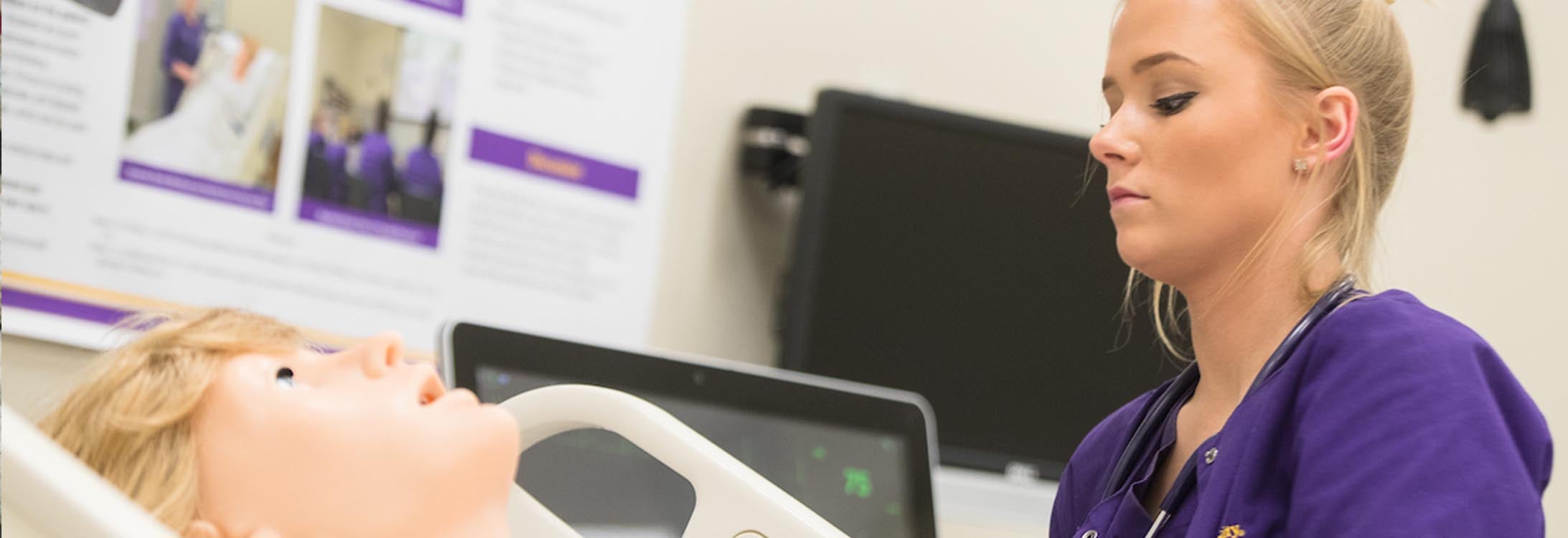Student Profile: Madison McCauley

ECU undergraduate researcher Madison McCauley is examining the learning outcomes of graduate nursing students to provide better care to patients.
Major: Nursing
Mentor: Dr. Donna Lake
Department: College of Nursing
Project Title: “From the Students Perspective: Analysis of Graduate Students Quality Improvement (QI) Learning Outcomes Using Reflective Strategies”
Madison’s research determines the learning outcomes of graduate nursing students who completed a standalone Quality Improvement (QI) course that was taught using the Dartmouth Microsystems Framework. This teaching curricula is designed to guide graduate level nurses through developing and leading QI changes in health care through teamwork to achieve better patient outcomes.
How did you get involved in undergraduate research?
I was introduced to Dr. Donna Lake’s research in a meeting with other honors nursing majors during my first semester of nursing school and it immediately sparked my interest. The College of Nursing faculty then connected me with Dr. Lake and I have been working with her ever since.
Why did you choose your research topic?
I have always been fascinated by nursing research, especially topics pertaining to public health and advancing health care systems which is why QI caught my interest. QI uses internal measures within an agency to improve patient outcomes, professional performance, and clinical operations, thus improving workforce job satisfaction and health care delivery.
What’s been your favorite part of conducting undergraduate research?
QI is such a holistic and ever-changing topic that can be applied to any health care setting which has made it relatable to every clinical rotation and has inspired me to seek out ways to improve agency policies. Also learning the research process and how to conduct a literature review has aided me tremendously in my undergraduate nursing courses.
What challenges have you faced while conducting undergraduate research?
My biggest challenge has been successfully balancing my semester course load while also conducting data analysis and finding free time to meet with my mentor.
Why is your research important for the general public?
Research has affected every constituent of a profession in some way, whether it was advancing the body of knowledge or changing the way a procedure is done. Research is a crucial part of both education and the professional field because change is inevitable and to make informed changes research is required. Researchers are always benchmarking health care processes and adapting procedures based on research findings, which allows nurses and other health care workers to provide evidence-based practice to patients every day.
What’s your ultimate goal or accomplishment that you hope your research will help you achieve?
I hope that my research will illuminate the importance of a standalone QI graduate education and encourage the baccalaureate of nursing faculty to also teach QI. The Dartmouth Microsystems Framework successfully provides students with the required skills to improve nursing practice and assume leadership positions within teams to advance health care. Also, I plan to provide further research evidence and develop deeper findings related to QI science.
Do you have any advice for other students interested in conducting undergraduate research?
I encourage other undergraduate students to explore research opportunities in areas of study they are interested in and attend research poster presentations to get a feel for exactly how intensive research can be. I also suggest students to be as flexible as possible when doing research and to be goal intensive to ensure the most efficient research timeline.
